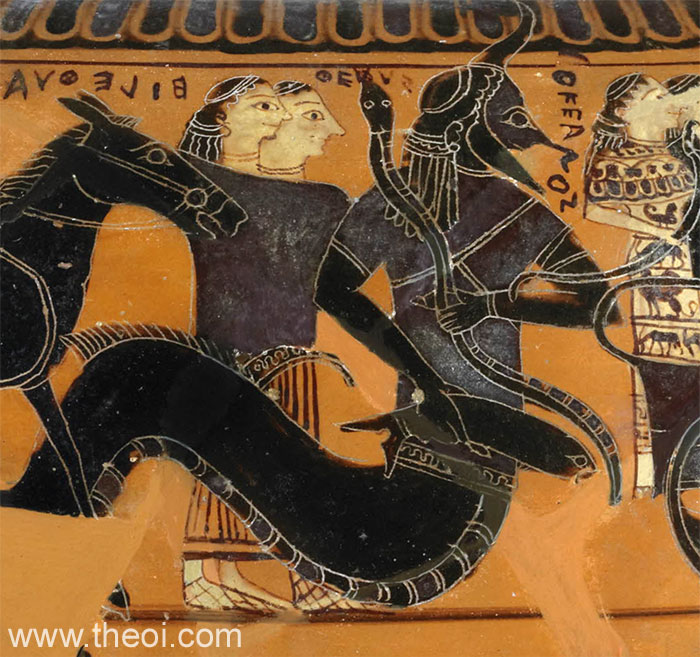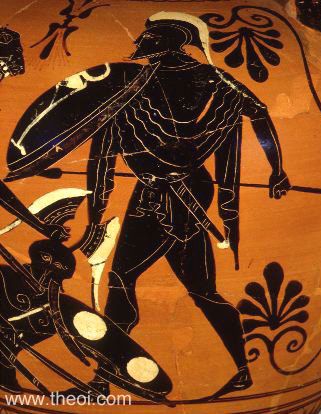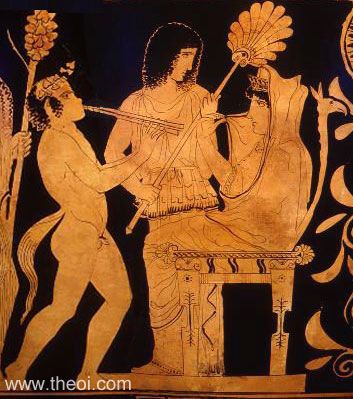
“How many children does Titan have” is a misplaced question people often ask. They erroneously assume that “Titan” was the name of a person or deity. This, however, couldn’t be further from the truth.
In ancient Greek mythology, the Titans were a primordial race of powerful gods and goddesses. They were direct descendants of Gaia (Earth) and Uranus (Heaven).
These immortal giants ruled the universe during the Golden Age. The name “Titan” was derived from their attributes which included incredible strength and stamina. Gaia and Uranus had 12 children who represented the first generation of Greek deities.
This article takes an in-depth look at each one of them. Read on.
1. How Many Children Does Titan Have:Oceanus
The ancient Greeks and Romans regarded Oceanus as the primeval god of the ocean. He was often depicted in ancient art as having a muscular upper body with horns on his head. The lower part of his body was that of a serpent. His union with his sister Tethys brought about the ocean nymphs and all the rivers of the world.
2. Hyperion
Hyperion was the Titan god of light. He was the father of the three shining gods of heaven – Eos, Helios, and Selene. The three represented the light of day, the sun and the moon respectively. Hyperion is also often considered the god of observation thought he plays virtually no active role in Greek mythology.
3. Coeus
Coeus was the Titan god of intelligence and resolve. He and his sister Phoebe had two children,Asteria and Leto. Leto would later go on to bear children with Zeus namely Artemis and Apollo.
Both Coeus and Phoebe had the gift of prophecy which they passed on to their grandson Apollo. Like all the other Titans, Coeus was overthrown by the Olympians and banished to Tartarus.
4. Cronus
Cronus is arguably the most famous of all the Titan deities. He was the primeval god of time and was considered a destructive and all-consuming force. He led his brothers in overthrowing Uranus and was at the helm in leading them in the battle against the Olympian gods. He gained power when he overthrew his father and lost it all again when he suffered the same fate at the hands of his son, Zeus.
5. Crius
Crius, the Titan god of heavenly constellations, was the father of Perses, Pallas and Astraios. He was also the grandfather of Hecate. He was charged with the ordering of the partitions of the year. While little is known about this Greek deity, he is considered to be one of the four pillars that separate the heavens from the earth.
6. Iapetus
Iapetus was considered the god of craftsmanship and morality. He was also the personification of one of the four pillars that are said to hold the heavens and the earth apart.
He and his three brothers played an active role in dethroning Uranus. Here’s an interesting tidbit: Iapetus’ sons were considered the ancestors of the human race.
7. Mnemosyne
Mnemosyne was considered the Titan goddess of memory and remembrance. She is considered to be the inventor of words and language. She played a pivotal role in the memorization of myths and stories before the skill of writing came along.
She was the Mousai’s mother who was the original patron goddess of the poets. She also had the gift of prophecy and presided over the Oracle of Trophonius.
8. Tethys
Tethys, the wife and sister of Oceanus, was the mother of all the river gods, as well as, the cloud and ocean nymphs. Together with her husband, they created all the waters of the earth and ruled over them before Poseidon became the god of the seas.
She is often confused with Thetis who Peleus’ wife and Achilles mother. Tethys was charged with watching over the freshwater streams while her husband, Oceanus, would preserve the earth’s salty water bodies.
9. Theia
Theia was the Titan goddess of the shining elements. Bright ornaments, light, and radiant metals were all associated with her. She was also thought of as the goddess of sight, and the ancient Greeks often depicted her as having eyes that were shining beams of light.
They believed that she helped mortals see through their own eyes. Just like her sisters Phoebe and Thermis, she also had the gift of prophecy.
10. Phoebe
Phoebe, one of the 12 descendants of Uranus and Gaia, had the gift of prophecy. She was one of the three prophets at the Oracle of Delphi preceded only by Gaia and Themis.
Legend has it that she would often hear her mother’s (Gaia) voice when occupying the Oracle. Gaia passed on the duty to her daughter Themis, who then passed it on to her sister Phoebe.
But, Phoebe found the task to be quite a difficult undertaking. So she eventually left it to her grandson Apollo, who earned great repute for having powers of prophecy that were greater than anything that existed before.
11. Rhea
Rhea was the Titan goddess of motherhood and fertility. She was married to Cronus and loved her children immensely. Sadly, the same can’t be said for her husband. As the myth goes, Gaia had prophesied that Cronus would suffer the same fate his father Uranus did at the hands of his son.
So, Cronus swallowed each one of the children he sired with Rhea. But, when Zeus was born, she hid him from her husband to save him. The prophecy later came to pass. Aside from Zeus, Rhea’s other children included: Hera, Demeter, Poseidon, Hades, and Hestia.
12. Themis
Last but certainly not least of the Titan deities was Themis, the goddess of divine law and moral order. She was also gifted with wisdom and foresight. She followed in the footsteps of her mother Gaia occupying the Oracle at Delphi before passing the mantle on to her sister Phoebe.
Themis is often depicted as a beautiful blindfolded woman holding a sword in one hand and a pair of weighing scales on the other. After Metis, she became the second wife of Zeus.
The Fall of the Titans
When Zeus came of age, he gave his father Cronus an emetic that induced him to vomit up his long lost siblings. Once reunited, they made up the Olympian deities that fought the Titans in a battle that raged on for 10 years.
When Zeus and his fellow deities secured the victory, they banished the Titans to Tartarus, a deep abyss in the underworld. Hopefully, this post has effectively addressed the “How many children does Titan have” question.


